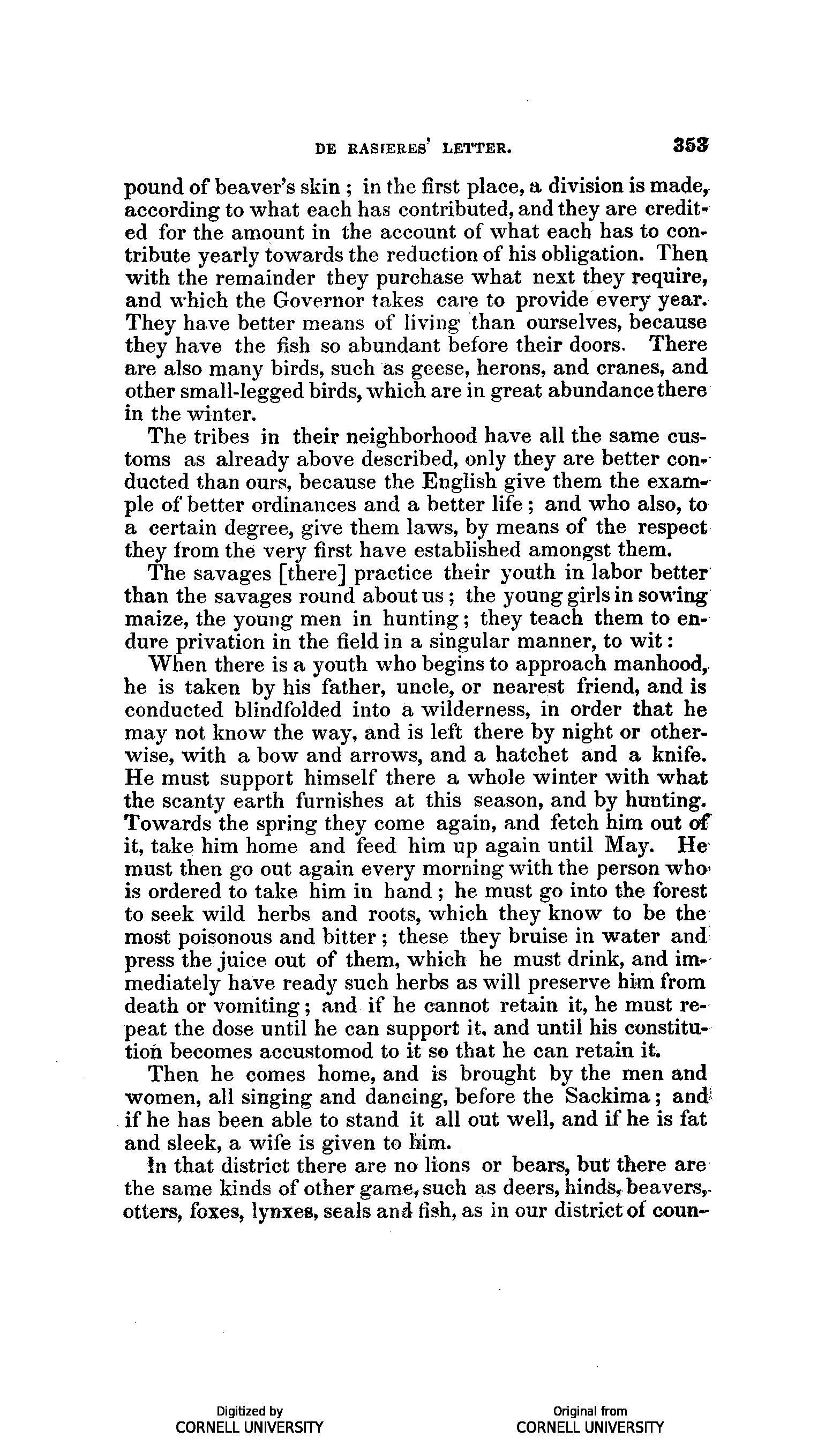pound of beaver’s skins; the profits are divided according to what each has contributed, and they are credited for the amount in the account of what each has to contribute yearly towards the reduction of his obligation. Then with the remainder they purchase what next they require, and which the Governor takes care to provide every year. They have better sustenance than ourselves, because they have the fish so abundant before their doors. There are also many birds, such as geese, herons and cranes, and other small-legged birds, which are in great abundance there in the winter. The tribes in their neighborhood have all the same customs as already above described, only they are better conducted than ours, because the English give them the example of better ordinances and a better life; and who also, to a certain degree, give them laws, in consequence of the respect they from the very first have established amongst them. The savages utilize their youth in labor better than the savages round about us: the young girls in sowing maize, the young men in hunting. They teach them to endure privation in the field in a singular way, to wit:
When there is a youth who begins to approach manhood, he is taken by his father, uncle, or nearest friend, and is conducted blindfolded into a wilderness, in order that he may not know the way, and is left there by night or otherwise, with a bow and arrows, and a hatchet and a knife. He must support himself there a whole winter with what the scanty earth furnishes at this sea-on, and by hunting. Towards the spring they come again, and fetch him out of it, take him home and feed him up again until May. He must then go out again every morning with the person who is ordered to take him in hand. He must go into the forest to seek wild herbs and roots, which they know to be the most poisonous and bitter; these they bruise in water and press the juice out of them, which he must drink, and immediately have ready such herbs as will preserve him from death or vomiting. And if he cannot retain it, he must repeat the dose until he can support it, and until his constitution becomes accustomed to it so that he can retain it. Then he comes home, and is brought by the men and women, all singing and dancing, before the Sachem; and if he has been able to stand it all well, and if he is fat and sleek, a wife is given to him. In that district there are no lions or bears, but there are the same kinds of other game, such as deer, hinds, beavers, otters, foxes, lynxes, seals and fish, as in our district of coun-


